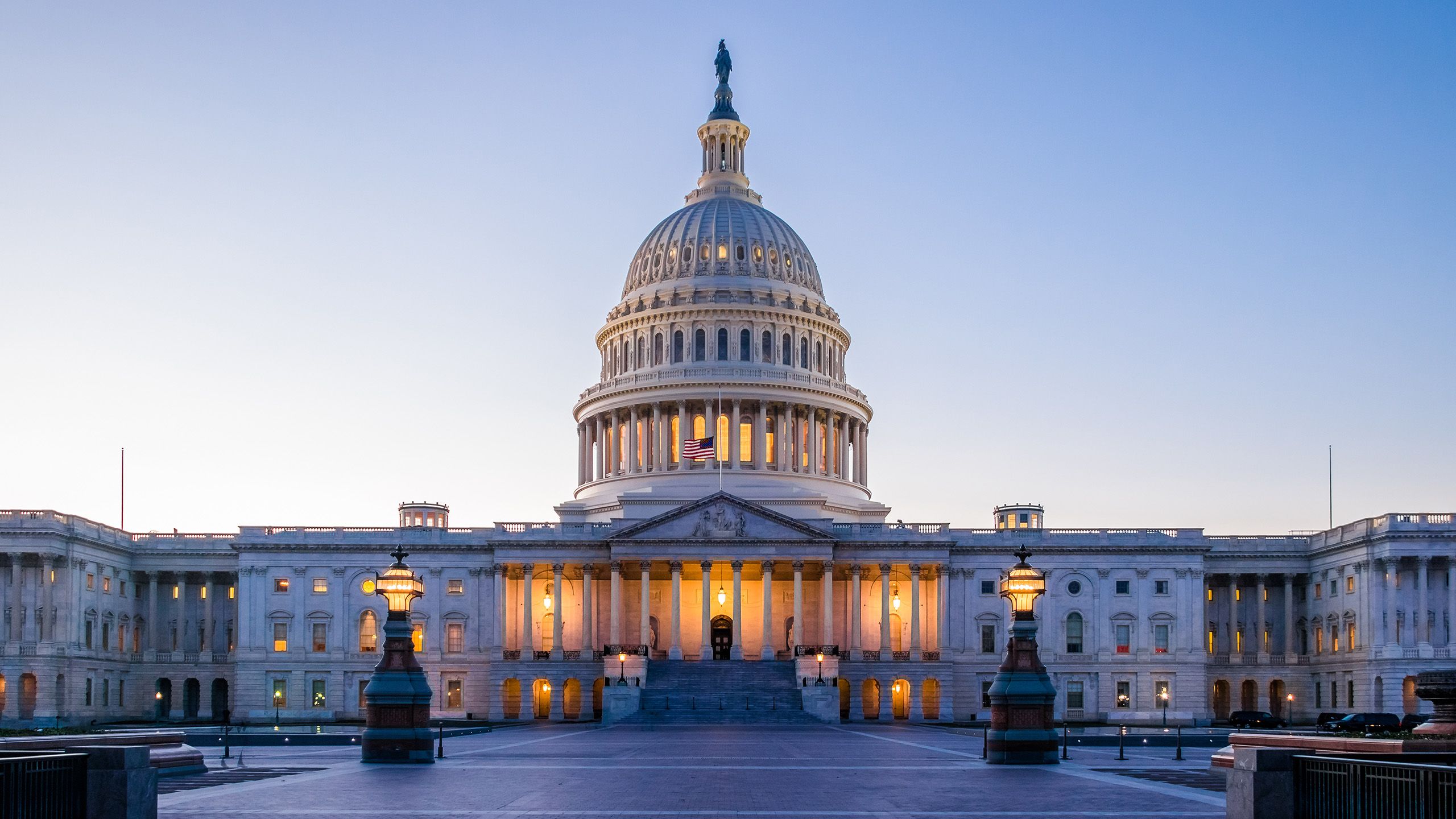The Aging Landscape of Politics
How old is too old to hold office?

Four of the most influential figures in U.S. politics—President Joe Biden, Former President Donald Trump, House Speaker Nancy Pelosi, and Senate Minority Leader Mitch McConnell—average 80 years of age. The so-called “gerontocracy,” or government consisting of leaders who are much older than the general population, has Americans of various political persuasions wondering whether elected officials should be subject to age limits. More than 50 percent prefer restricting individuals over a certain age from serving, but it’s a sensitive topic.
“In a youth-oriented culture, some youth-centric perceptions still persist,” said Nancy Cresse, a Rutgers University–Camden associate clinical professor of nursing and a geriatrics nurse practitioner. “Elders are not less capable than someone younger. All elders have greater health risks than younger adults; their reflexes may be slower, and some word-seeking occurs, but IQ, vocabulary, and cognition remain the same for many elders.”

Nancy Cresse, clinical assistant professor in the Rutgers School of Nursing–Camden
Nancy Cresse, clinical assistant professor in the Rutgers School of Nursing–Camden
While some elderly people experience some cognitive decline, Cresse cites Alzheimer’s Association estimates that 14 percent of people aged 72 or older show some signs of cognitive impairment. Age limits exist for workers in some important and demanding professions. New Jersey State Police are required to retire by the age of 55. The Federal Aviation Administration prohibits pilots from working after they turn 65. But Cresse believes that in politics, age and wisdom can be strengths.
“Elders have a lifetime of experience, an ability to quickly assess situations and skills in relationship-building that give them an advantage in problem-solving, making them effective leaders,” Cresse said.
An analysis of performance ratings of U.S. presidents conducted by Sean Duffy, a Rutgers–Camden associate professor of psychology, showed there is no difference between the historical approval ratings and a president’s age at inauguration.
“In the United States, presidents surround themselves with staff who help with the day-to-day decisions that are being made in this high-stress job,” said Duffy. “So even if the buck stops with the president, most major decisions are not made solo.”
Certain cognitive functions actually improve with age, in what psychologists call “crystallized intelligence”—knowledge that comes from prior learning—and the ability to make good judgments through years of experience.
President Joe Biden turned 80 recently and is considering running for re-election. If presidential candidate Donald Trump is elected again in 2024, he would turn 80 while in office. Many of the leaders in the United States Congress are seasoned lawmakers in their 70s and 80s, including 72-year-old Senate Majority Leader Chuck Schumer, 82-year-old Congresswoman Nancy Pelosi, who will step down as Speaker of the House but continue to serve, and 80-year-old Senate Minority Leader Mitch McConnell.
Both Duffy and Cresse said age should not be the main measurement of one's capability to serve in some of the world’s highest public offices. What matters is good health, fitness, and functioning.

Sean Duffy, associate professor of psychology in the College of Arts and Sciences
Sean Duffy, associate professor of psychology in the College of Arts and Sciences
“It really depends on the leader,” said Duffy. “Certain politicians should have retired long before they did. Strom Thurmond was 100 years old when he retired from the Senate. Reports at the time suggested his staff had to hold his hand and move it to press the button casting his vote. That is a bit extreme, but it also would be wrong to have mandatory retirement ages. One benefit of having someone with decades of experience is that they understand history, since they lived through it. They understand the ‘system’ and the political players.”
Young Leaders Face Judgment Over Age
In many cases, young elected officials face the same age-related criticism as their older colleagues. In 2018, when Congresswoman Alexandria Ocasio-Cortez took office at age 29, becoming the youngest woman ever to serve in the House of Representatives, her ideological opponents frequently invoked her age and relative inexperience. As both the Democratic and Republican parties attempt to elevate charismatic young stars within their ranks, generational divides have become a focus of political discourse.
Age-related political controversies have even arisen internationally. On Nov. 30, when Finnish Prime Minister Sanna Marin, 37, met with New Zealand Prime Minister Jacinda Ardern, 42, a reporter asked if they had decided to meet because they were “similar in age.” The stated purpose of their meeting was to discuss trade and sustainable development. In her response, Ardern challenged the reporter, asking whether a pair of young male leaders would have received the same question. The incident highlighted the level of scrutiny young leaders—particularly young women in power—face because of their age.

Rep. Alexandria Ocasio-Cortez (Franmarie Metzler; U.S. House Office of Photography)
Rep. Alexandria Ocasio-Cortez (Franmarie Metzler; U.S. House Office of Photography)

(L-R) Finnish Prime Minister Sanna Marin and New Zealand Prime Minster Jacinda Ardern (Getty Images)
(L-R) Finnish Prime Minister Sanna Marin and New Zealand Prime Minster Jacinda Ardern (Getty Images)

Creative Design: Karaamat Abdullah